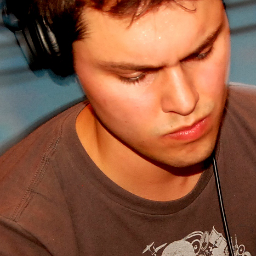DJing
Every now and then I DJ at parties. It all started when I was 12 years old. I wanted to be the cool guy at parties, but I didn't play any instruments and I couldn't really dance. It worked out well.
During high-school I got quite obsessed with it. I owned a pair of Technics SL-1200, a mixer, disco lights and a smoke machine. I wore Technics T-shirts and bought books and DVDs about famous DJs.
I have played quite a few different genres over the years, Drum & Bass, Electro, Deep House, etc. More recently, I started playing Nu Disco and Funk. You can listen to some DJ sets I recorded on Mixcloud or Soundcloud.
Many people ask me what DJs actually do. I used to argue over how much skill was involved in mixing, scratching and using sound effects. Today, mixing is aided by software and, apart from Hip Hop DJs, very few DJs can scratch. I now think the most important skill for a DJ is to be able to read and drive an audience.
How I prepare for a gig
I believe the real DJ work is done before a gig. Researching new music, selecting the most distinct tunes and really understanding how they go. Before each gig I'll normally spend at least a couple of weeks listening to new releases on Beatport, Juno and Traxsource. Most professional DJs I know do this on a daily basis. I look for tracks that stand out in terms of groove and distinct timbre, or sometimes simply a good reinvention of a well know song.
I analyse each new track using a tool called Mixed In Key. It basically assigns each track a code that identifies the song's key and provides an easy guide to know which ones may go well together. It's a pretty helpful tool to assist in choosing the next track to play.
I use Serato DJ to play, simply because my DJ gear of choice was designed to work well with it. In addition to Mixed In Key, I also analyse each track with Serato DJ. Serato maps all the beats for each track and displays their speed (BPM). I can also set up cues, so that I can choose the best position to start playing a tune from. This will depend on the song I played before and also the sort of response I'm getting from the audience at the time.
Finally, contrary to many, I like to pick my starting track in advance. First impressions matter, so I tend to choose one that will hook the audience from the start, very few do!
It's important to understand your crowd so you can tailor the experience to them. As a very smart guy once said, a lot of times, people don't know what they want until you show it to them.
